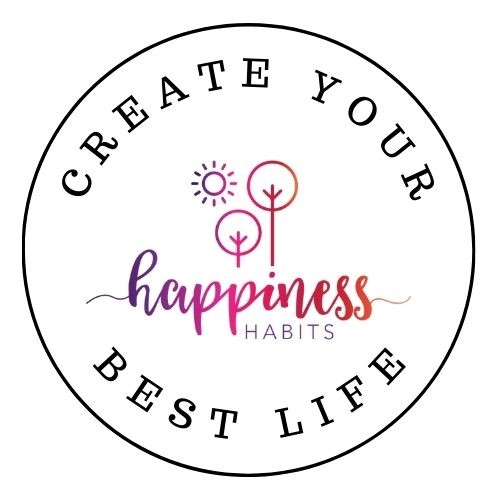Having a mentor is one of the best ways to build yourself up. There are many community services that are using mentoring programs. It is a tactic that works, which explains why over 70 percent of Fortune 500 companies have workplace mentoring programs.
One of the keys to a successful mentorship program is setting goals and objectives.
However, if you are new to mentoring it can be difficult to know where to start so that you get the best from the experience and your time with your mentor. Here is a brief guide about what to expect in a mentoring program and how you can succeed.
Happiness Habits Inc. has an established mentoring program in place so the first thing you need to do is get registered. This can happen in a variety of ways, depending on whether you are referred by another community service or you want to self-refer. Registering simply involves either completing an online questionnaire or calling to arrange an initial appointment to complete the forms. The list of questions may seem very detailed but it is important to remember we are really trying to find out more about you so we can make a good match with a mentor.
After you have filled in your forms and become registered as a mentee, the mentoring coordinator will need to find you a mentor match. With our experience, the process of finding a good mentor-mentee pairing can take place very quickly. Once you have your match, it is up to the coordinator, you and your mentor to set up an initial appointment. From there, the coordinator will setup a schedule and decide what you are going to accomplish during the next few months.
The first time you meet your mentor can be a little nerve-racking, but if you go into the situation prepared it should go smoothly. There are some things you can do to make sure your time with your mentor is used effectively for you both. These include:
Know what your goals are and what you want to achieve through the mentorship
- Define how you are going to measure those goals so you know if you have been successful
- Have some questions lined up to get to know your mentor and how they can help you
- Give feedback to your mentor program coordinator, which can help enhance the workplace mentoring program
Although many people may think that the success of a mentor-mentee realationship is largely dependent upon the mentor, that is not really the case. A good relationship between the mentor and mentee is as much the responsibility of the mentee as it is the mentor. Here are some ways that you can help create a productive relationship with your mentor.
1. Show appreciation. Remember that your mentor is not being paid to spend their time with you. Appreciation of their time is a characteristic of a good mentee. You can do this by showing an interest in them as a person. If they have a special milestone coming up celebrate it with them. It can also come through in the way you communicate with them. A simple thank you or follow up text or email can show your mentor that you value their time.
2. Be prepared. Along the same lines as showing appreciation, coming to your sessions with questions and a plan can also promote a good working relationship with your mentor. Do some research or follow up on some advice they offered to demonstrate you really want to get the most out of the mentoring opportunity.
3. Be committed to your mentor. Show up on time or at least give sufficient notice if you have to miss a session. Then reschedule as soon as you can. Be dedicated to the mentor-mentee realtionship and commit yourself to get the most out of the experience.
4. Give back to your mentor. Your mentor is offering you knowledge, advice and guidance but as a mentee, you also have something to offer to the mentor. Find ways that you can help your mentor, whether that is by teaching them new skills or encouraging them in their dreams or hobbies.
5. Move out of your comfort zone. Good mentors will often push you beyond your comfort zone. Rather than resist them take up the challenge and follow their advice. Remember that your mentor wants to help you do your best and sometimes that means taking risks.
One key part of getting the most from your mentorship is to pick the right mentor for you. There are several things we look for when we select you a mentor. These include:
Experienced – does the mentor have experience in the area that you want to grow in? A good mentor is one who can guide you and perhaps even teach you aspects about how things work that you don’t yet know.
Motivated – all our mentors are motivated to help you. Your mentor will be eager to give advice that helps you develop your goals as well as use and improve your strengths and talents.
Positive – every one of our mentors will have a positive outlook and it will rub off on you!
Communication – a good mentor needs to be able to communicate well with others, especially you. This means that they are able to deliver constructive feedback in an effective way.
There could be other characteristics you may want to look for in your mentor to be sure you can easily talk over your issues with them. Also, don’t feel that you have to stay with your mentor if you feel they aren’t a suitable match for you. Mentoring is built around a relationship and that needs to be a positive experience for both of you. Don’t be afraid to approach the coordinator to change your mentor if you don’t feel it is the right match for you.
Having a mentor is one of the best ways to develop your knowledge, skills and talents to achieve your goals in life. To get the most from your mentor relationship it is important to be prepared, have a good match and commit yourself to the process.
Remember that mentoring has the power to accelerate our self-development, life progress and overall confidence, it’s pretty surprising that very few people have a mentor, particularly given that so many successful people recommend and praise the mentor(s) they have had in their lives.





